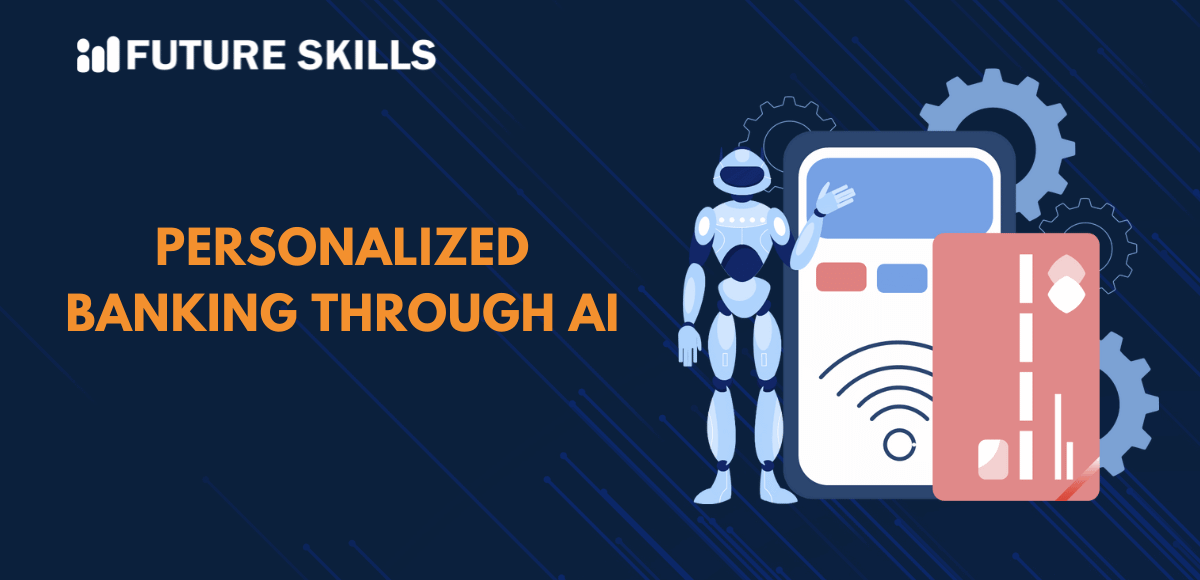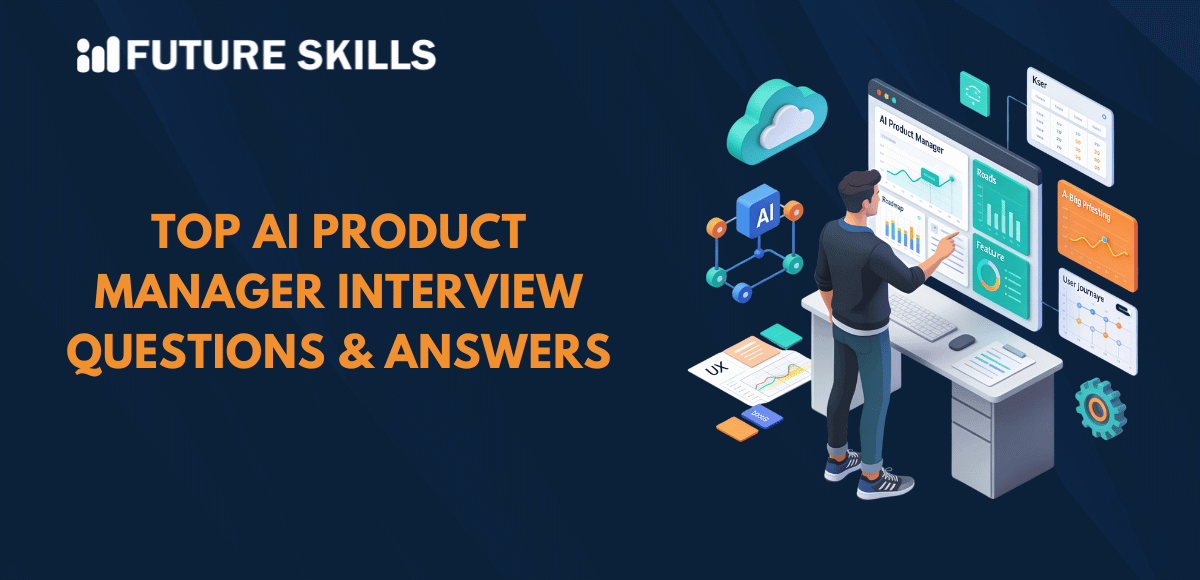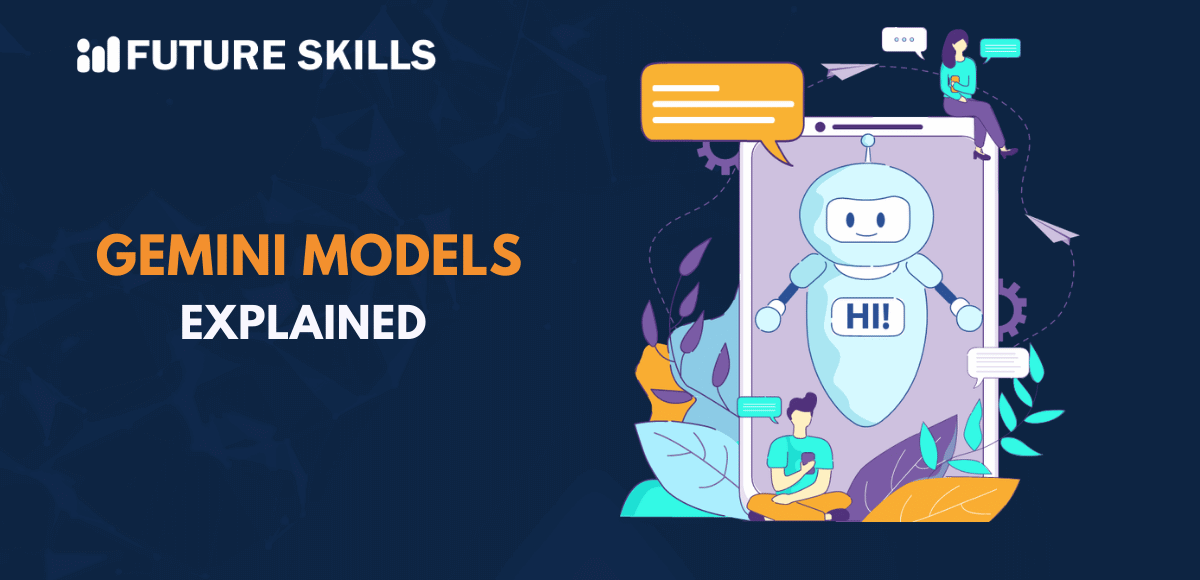The radical transformation of the financial services industry is one of the best examples of the power of artificial intelligence. You can notice the growing adoption of AI in personalized banking experiences with promising benefits in revenue growth and customer engagement. If your organization is still thinking about AI adoption, then you are at the risk of losing market share to competitors.
Embracing artificial intelligence in the banking sector requires awareness of the different ways in which AI can revolutionize financial services. The most prominent use cases of AI in the financial services and banking sector draw the limelight towards generative AI. Let us find out how AI plays a major role in delivering personalized banking experiences.
Level up your AI skills and embark on a journey to build a successful career in AI with our Certified AI Professional (CAIP)™ program.
Why is Personalization Important in Banking?
Personalization is a notable trend in the banking and financial services sector as it revolves around customizing banking products and experiences for specific needs and preferences of customers. You can find answers to “How does AI provide personalized experiences?” in the power of artificial intelligence to use customer data for creating personalized banking experiences.
The definition of personalization in the banking and financial services industry few years ago focused on trust, relationships and banking history of an individual. However, personalization is no longer a luxury in the banking sector as customers seek banking experiences and services which align perfectly with their unique needs.
You must also know that personalized banking experiences bring many advantages for customers as well as financial institutions. For instance, banks can have a better understanding of customer pain points and preferences. Customers will get the products and services that solve their current problems while banks can improve their revenue and reputation.
Familiarize yourself with the best practices for implementing AI and fintech solutions With AI and Fintech Course.
Role of AI in Delivering Personalized Banking Experiences
The most promising feature of AI that helps in creating personalized banking experiences is the ability of machines to learn. AI can offer insights on customer spending patterns and interactions in the banking sector that would be difficult for human experts to uncover. The diverse strengths of AI in banking can help in personalizing different aspects of the customer’s journey with a bank. You can come across different ways in which artificial intelligence plays a crucial role in delivering personalized banking experiences.
-
Insights in Customer Data
The power of artificial intelligence to offer personalized banking experiences comes from its ability to learn from data. AI models can learn from massive repositories of structured and unstructured data in the banking sector to draw insights and identify patterns that can help in making accurate predictions about customer actions.
Generative AI can leverage machine learning algorithms and deep neural networks to extract insights from structured and unstructured data in the banking sector. Customers offer their data in the form of transaction history, social media activity and demographic information to banks. Subsequently, banks can leverage AI to understand these data points better and identify their requirements with more accuracy.
-
Customization of Products and Services
Generative AI has a significant role in ensuring personalized banking experiences as it helps banks in creating custom financial products and services. The benefits of AI in banking are clearly visible in the ease of evaluating customer spending patterns and risk tolerance for recommending credit card options or investment strategies.
With the customization offered by AI, customers get the relevant financial solutions that help them achieve their desired goals. One of the best examples of customized products in banking is the facility of wealth management apps. Customers can rely on wealth management apps for personalized recommendations on investment strategies and better approaches for achieving financial goals.
-
Personalization in Marketing
The significance of AI in delivering personalized banking experiences is also evident in the domain of marketing. Customers can get personalized marketing messages, emails and social media content with AI driving the marketing efforts of banks. On top of it, artificial intelligence can also help banks with the distribution of marketing materials across multiple channels.
Artificial intelligence models can evaluate historical data patterns to come up with highly customized and targeted marketing content for customers. Personalization of marketing content can lead to higher audience engagement and conversion rates, thereby indicating how AI transforms banking.
Level up your ChatGPT skills and kickstart your journey towards superhuman capabilities with Free ChatGPT and AI Fundamental Course.
-
Virtual Assistants and Chatbots
Artificial intelligence has also provided solutions to the traditional customer support issues, such as accessibility and resolution of customer queries. Virtual assistants and chatbots are the most prominent AI in banking examples that represent the innovative potential of artificial intelligence. Big banks such as the Bank of America and Natwest have adopted AI chatbots to streamline customer service operations. For instance, the Erica chatbot by Bank of America helps customers in tracking expenses and managing accounts with text and voice commands.
With the help of chatbots, banks can ensure personalization by resolving customer issues in real-time. AI-powered virtual assistants and chatbots understand customer queries exactly like another human and respond with personalized solutions and recommendations. Banks can not only provide personalized customer experiences with AI chatbots but also empower human customer service representatives to focus on more strategic tasks.
-
Credit Risk Scoring
The benefits of personalized banking experiences with artificial intelligence also take the limelight when it comes to loan approval. AI can help in improving credit risk scoring through analysis of multiple data points, such as money transfer patterns, transaction history and credit scores. Machine learning models in AI tools and systems can help in generating more accurate credit risk assessments than human experts. Personalized banking experiences with artificial intelligence can help banks make better lending decisions.
The utility of AI in personalized banking services also draws attention towards flexibility for accurate identification of potential risks. As a result, banks can reduce default rates and propose alternatives that were undermined in traditional credit risk assessment. The personalization in recommendations for financial products based on accurate risk assessments helps customers make healthy credit decisions.
-
Fraud Detection and AML
Artificial intelligence not only offers the benefit of personalization in banking but also enhances security. Generative AI models facilitate real-time analysis of user behavior and transaction patterns, thereby enabling easier fraud detection. Advanced machine learning algorithms can help with faster identification of anomalies that may indicate fraudulent activity. As a result, banks can adopt a proactive approach to fraud detection and safeguard customers from frauds.
The answers to “How does AI provide personalized experiences?” in fraud detection point at how AI monitors all transactions and activities of customers. If the AI recognizes a transaction that a customer has never done before, then it would prompt the bank to take immediate action. Therefore, AI also offers the assurance of personalized security to customers in the banking sector. AI models can also protect customers from concerns of money laundering by detecting and reporting patterns that indicate suspicious transactions.
Understand how fintech is revolutionizing finance and develop a career with our Fintech Certification Program. Enroll now!
Final Thoughts
Artificial intelligence is a formidable force for digital transformation in many industries, including the banking and financial services sector. You can find diverse use cases of AI in banking that showcase the power of personalization. One of the best examples of personalized banking experiences with artificial intelligence points at AI-powered virtual assistants and chatbots. Banks can use them to enhance customer service while opening room for human customer service representatives to focus on more important work. Learn more about the best practices and challenges of leveraging AI in the banking sector now.






